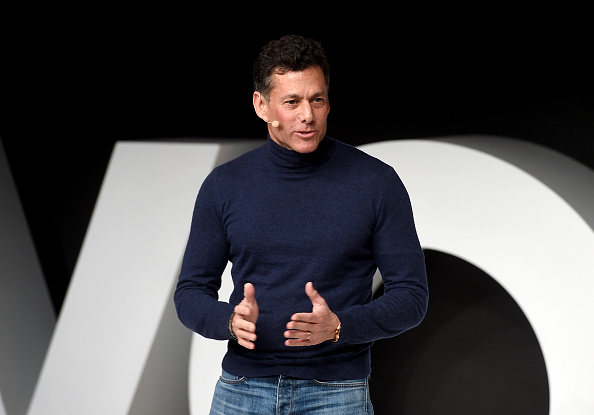The ever-evolving landscape of artificial intelligence (AI) sparks a multitude of discussions, with concerns about job displacement often taking center stage. However, Strauss Zelnick, CEO of video game giant Take-Two Interactive, offers a refreshing perspective. In his recent address at the TD Cowen conference, Zelnick argues that AI, while enhancing efficiency, won’t necessarily lead to widespread unemployment in the game development industry. Let’s delve deeper into his reasoning and explore the potential impact of AI on the future of game creation.

A History of Efficiency Gains: A Stepping Stone to New Challenges
Zelnick emphasizes a crucial point: the gaming industry has a long history of embracing technological advancements to streamline processes. He highlights the evolution of animation techniques – from painstaking hand-drawn frames to sophisticated computer software. Despite this shift towards efficiency, development costs haven’t plummeted.
This seemingly counterintuitive phenomenon can be explained by the rise of new complexities. As Zelnick explains, “Efficiency has been created and this has allowed us to turn our attention to more complex activities that continue to engage and delight consumers.” Essentially, the time saved through automation empowers developers to tackle more intricate and ambitious projects.
AI: A Tool for Transformation, Not Replacement
Projecting this trend onto the future of AI, Zelnick anticipates a similar pattern. Generative AI, capable of automating various tasks, will likely lead to further efficiency gains. However, he believes this won’t translate to a reduction in the workforce. Instead, it will free up developers to focus on areas that are more time-consuming and require a human touch.
Zelnick offers a compelling analogy: “The head of Take-Two mentioned that animation used to be hand-drawn, but today is done on computers, but costs much more than a Mickey Mouse movie in the 1920s.” This underscores the idea that while automation reduces the time spent on specific tasks, the creative scope and overall complexity of projects can increase, leading to potentially higher development budgets.
A Shift in Skillsets, Not Elimination
Zelnick goes a step further, vehemently refuting the notion that AI will render workers obsolete. He asserts, “I don’t think generative AI will reduce employment. This is madness. This is crazy.” Instead, he predicts a transformation in the types of skills required within the workforce.
Certain tasks currently performed by humans might become automated, prompting the need for employees to adapt and develop new skill sets. This aligns with Zelnick’s observation about the history of automation: “The history of productivity tools is that they increase employment.” New job opportunities will likely emerge, requiring different skill sets to work alongside and complement AI capabilities.
Embracing the Future: AI as a Collaborative Partner
The message from Zelnick is clear: AI shouldn’t be viewed as a threat to jobs, but rather as a powerful tool. By leveraging AI’s capabilities for automation and data analysis, game developers can free themselves to focus on the creative aspects of game design, storytelling, and user experience. This collaborative approach, where humans and AI work in tandem, holds immense potential for the future of game development.
FAQs
Q: Will AI take away jobs in the game development industry?
A: Strauss Zelnick, CEO of Take-Two Interactive, believes AI will not lead to widespread unemployment. While some tasks might become automated, new job opportunities requiring different skill sets are likely to emerge.
Q: How will AI affect game development costs?
A: While AI may improve efficiency in some areas, Zelnick anticipates that the overall development budget might not necessarily decrease. The time saved through automation could enable developers to focus on more complex and ambitious projects, potentially leading to higher costs.
Q: What role will AI play in the future of game development?
A: AI has the potential to be a powerful tool for game developers. It can automate tasks, analyze data, and potentially even contribute to creative aspects of game design. The key lies in utilizing AI as a collaborator alongside human talent.




